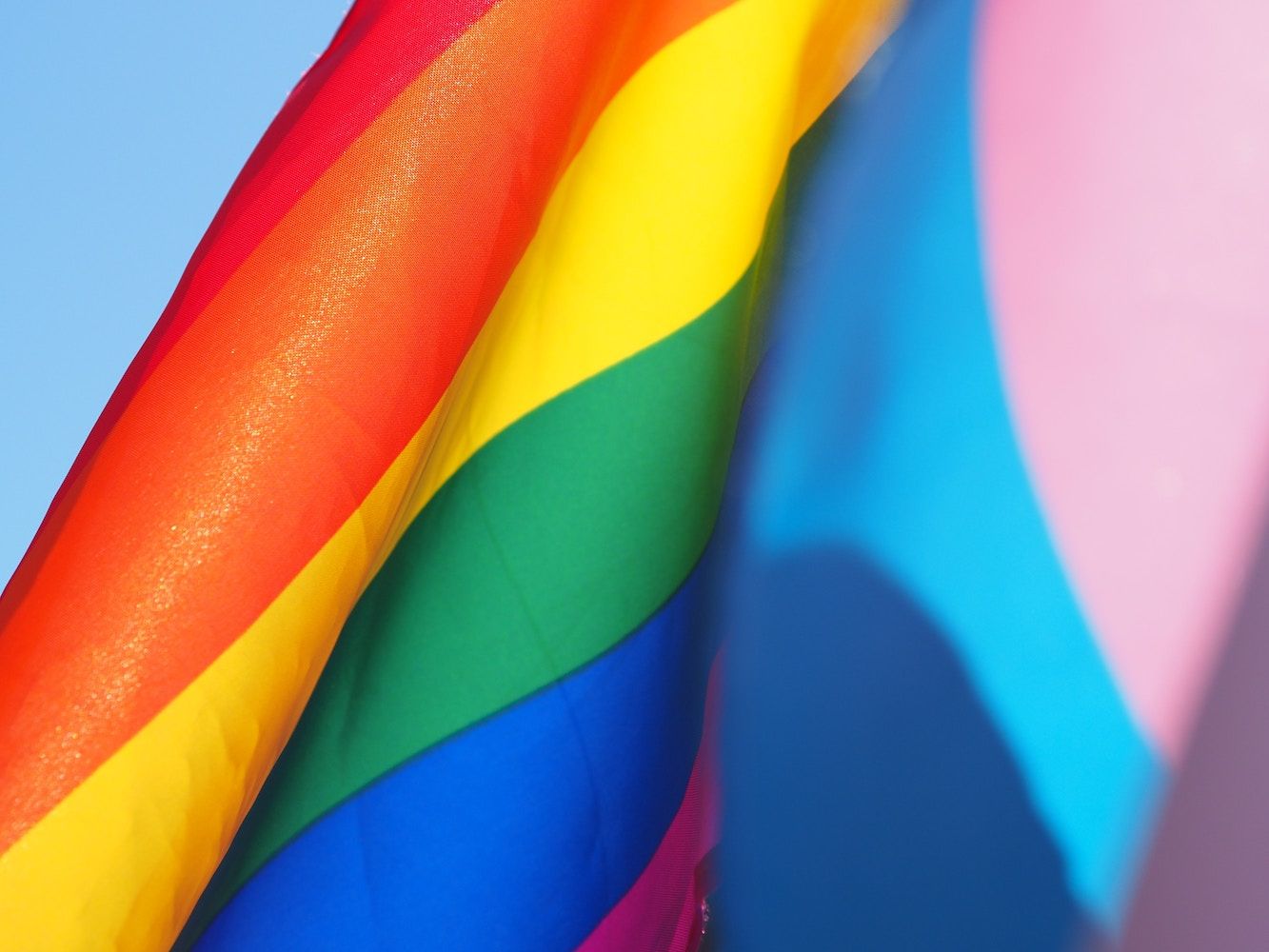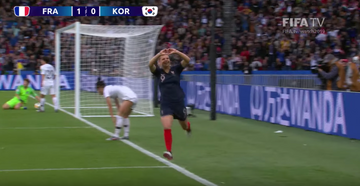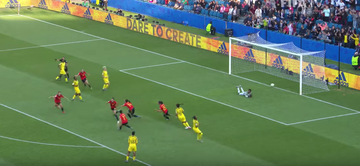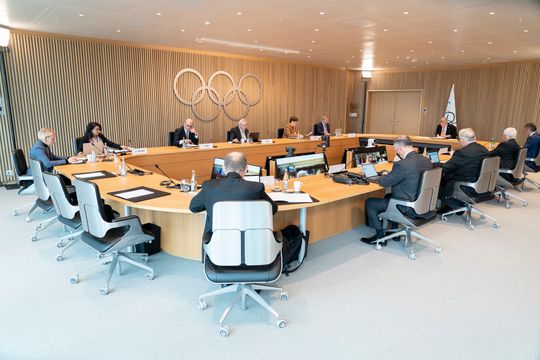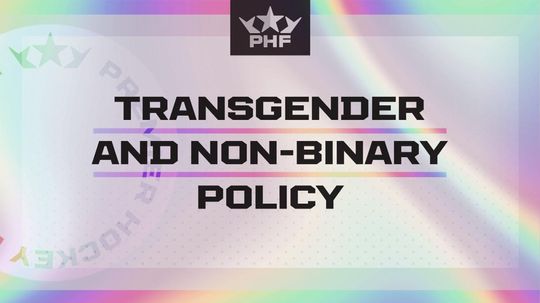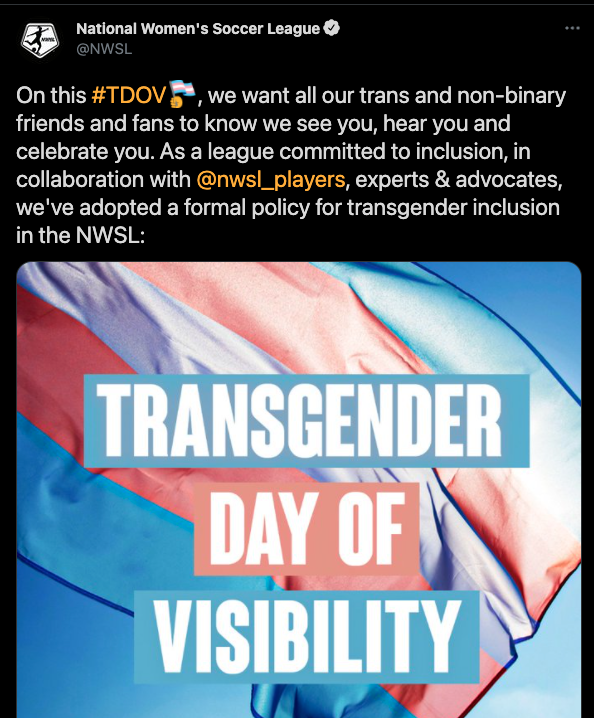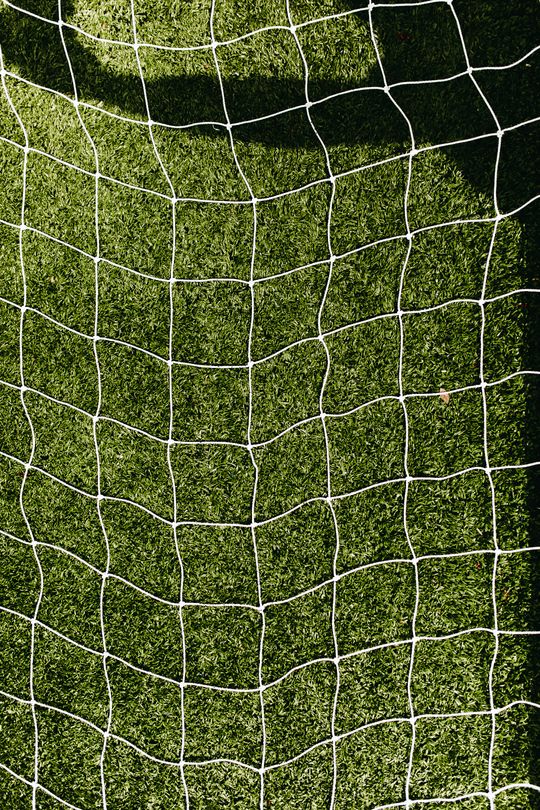On Thursday night I was on the subway in Toronto with dozens of Blue Jays fans who had attended the Jays' Pride Night game at Rogers Centre. Many were still wearing the free giveaway: a Jays rainbow Henley. From the conversations I overheard and the discussion I read on Twitter, it's clear that the night, designed to foster LGBTQ2IA inclusion, meant something significant to many of those in attendance. The experience is going to be repeated in dozens of stadiums across North America this month.
June is Pride Month and the event, with its origins in political action and queer resistance, has become a fixture on the North American sports calendar. While there is still opposition from bigoted fans, sports teams across leagues like the WNBA, MLB, CFL, and MLS will host Pride Nights. League avatars on social media will go rainbow for the month and teams will sell allegedly queer-themed team merchandise. There will be considerable discussion of diversity, inclusion, unity, and strength. Ally organizations will applaud these efforts and highlight non-queer ambassadors who allegedly deserve praise from the LGBTQ2IA community.
Pride is a paradox. For many queer people, it can act as a balm from the consistent bigotry we experience in sports. It offers visibility, especially in the toxic and heteronormative world of men's elite sports. In sporting environments where the concept of "team" is paramount, LGBTQ2IA folks have the chance to be part of the home team without hiding their identities. These experiences are vital.
The contradiction comes when Pride Nights and queer inclusion efforts are examined within the context of sports and rainbow capitalism. As these events become more normalized and occur with more frequency, its clear that the motivation is not significant institutional change to tackle foundational queerphobia; rather, it is the exploitation of LGBTQ2IA identities for additional revenue streams. And primarily, it seeks to include and represent only cis queer identities that are most palatable to straight cis folks.
While many teams and leagues will participate in Pride festivities, they do so while sporting bodies all over the world are actively participating in the extermination of gender diverse people from public life. It is tempting for queer fans and athletes to focus on the meager material changes in the sports world, to cheer as another prominent voice dares to utter the word "homophobia" and vaguely denounce it, but it is considerably more urgent to look through the rainbow lens of Pride Nights and to see clearly what rainbow capitalism achieves in sports. As Pride Nights and nominal inclusion efforts gain traction and support with many allies and cis LGB folks, gender diverse members of LGBTQ2IA communities are almost always left behind. The leagues and teams we love increasingly embrace the rainbow flag, but they implicitly or explicitly continue to support influential policies that are being enacted to bar trans, non-binary, gender nonconforming, intersex, and gender diverse athletes from ever taking the field.
With an institutional mandate not for inclusive change but for corporate profit, it is integral for queer sports fans to remain critical of Pride Nights, rainbow capitalism, teams, and sports institutions while enjoying one of the few times of the year when the professional sports calendar acknowledges queer lives.
The gradual embrace of Pride Month is a predictable outcome in a capitalist sports landscape. Given the opportunity to exploit the wealth and identities of queer folks, sports teams and leagues now embrace what was a non-starter not so long ago, but they do it for the dollars. These nights rarely come with commitment to undertaking any substantive changes that are required and necessary to make sports truly inclusive for queer and trans people. While the sports world is still actively homophobic, lesbophobic, and biphobic despite the recent rise of Pride events, it is also currently a willing and active participant in the erasure of gender diverse people from public life. It is crucial those in LGBTQ2IA communities who aren't trans, nonbinary, genderqueer, gender nonconforming, and intersex prioritize the rights and safety of those who are, especially in the sports world.
Leagues and sporting bodies at all levels are enacting regulations designed to mandate and restrict who can participate in gendered competitions. This is not new. Specifically, the strict control of who was "female" enough to participate in women's sports and the gender testing that went along with that questioning has been part of women's sports for decades. I have already outlined this bigoted and violent history in previous pieces, for those interested in more detail:
- The Opposite of Fair Play: Part I
- The Opposite of Fair Play: Part II
- The Opposite of Fair Play: Part III
Make no mistake, both historic and current gender policies and rules are transphobic, racist, misogynistic, and immoral. Like earlier gender policies governing elite women's sports, these current rules will be subject to criticism, challenge, and change. There is no medical, scientific, or experiential evidence to justify the adoption of these rules. Those implementing these regulations rely on erroneous and binary assumptions about testosterone and its effects to create rules that ban many from playing. As subject matter expert Katrina Karkazis succinctly puts it in her March 2019 column at The Guardian:
What is clear is that testosterone is not the unique essential ingredient for success across every conceivable sport. Labelling women "biological males" draws a dubious connection between sex, testosterone, and athleticism that relies on long-discarded ideas that men and women can have a "true sex", that testosterone is a "male sex hormone", and that testosterone is the key to superior athleticism. None of these are true, and it's long overdue that people stop saying they are.
We already know how damaging these regulations are. Unfortunately, too many in the sports world are willing to adopt them in order to preserve their idea of what gender should be, despite overwhelming evidence that this has nothing to do with reality.
Much of these efforts are focused on gender diverse athletes who compete in women's competition, specifically trans women and athletes with intersex variations. Those who have advocated for such legislation, like the IAAF's recent and horrifically bigoted ruling against women athletes with testosterone levels outside the arbitrary and made-up "normal female range", most notably Caster Semenya [1] and Dutee Chand, are simply and gleefully revelling in their bigotry and use the idea of protecting allegedly "normal" cis women's bodies as a shield.
There will be those who point out that many governing bodies have provisions for the inclusion of trans athletes and simply require athletes adhere to hormone levels within specific ranges. There are trans activists, writers, and athletes who will agree that adherence to arbitrary "hormonal norms" is fair and just, especially at the elite level. But there will always be many athletes who fall outside these levels with a variety of gender identities. They should have the right to participate in elite, competitive, and recreational sports, too. When trans people accept the arbitrary cis-created regulations designed for cis comfort, we're accepting a norm designed to ensure we remain other. We're accepting a norm designed to ensure as few of us as possible are included, play, and survive.
We tend to refer to LGTQ2IA folks as a singular community. It is more accurate to say communities – plural. There are members of LGTBQ2IA communities who actively weaponize trans identities with arguments about "fairness" in competition. Some of the best-known gay and lesbian rights activists in the sports world, such as Martina Navratilova, have given anti-trans factions queer cover for their bigotry. When an LGBT athlete of Navratilova's stature supplies transphobic soundbites for bigots to parrot and regurgitate, we are all diminished. Her status as a lesbian, longstanding advocate for queer people, and elite athlete have lent credence to her bigoted and deceptive arguments.
Her words have not only impacted the trans and intersex rights movement in sport – they have also been echoed by politicians aiming to eradicate trans people from public life. Navratilova's recent op-ed about trans athletes has been used, particularly in the United States, by bigoted lawmakers as evidence in the fight to restrict trans people from public life. As Lindsay Gibbs wrote earlier this year for ThinkProgress:
... But the true impact of Navratilova's words were felt in South Dakota, where state representatives have been trying to pass House Bill 1225, which, if enacted, would force high school students to compete in sports based on the sex on their birth certificate, not their gender identity. On Monday night, the bill failed to win the majority of votes required to proceed in a 34-34 deadlock. But for the LGBTQ community, it was too close for comfort, and the fact that Navratilova's own words were weaponized in the effort to take sports away from transgender children did not escape attention.
In fact, as the bill's backers traded in horror stories masquerading as arguments, darkly warning that being transgender was tantamount to having a mental illness and insinuating that the lion's share of such children come to regret their decision and detransition, Rep. Lee Qualm (R) passed around a Wall Street Journal opinion piece based on Navratilova's comments to everyone in the chamber, and read an excerpt from it out loud.
Navratilova's anti-trans op-ed is illustrative of a larger trend, one in which trans and gender policies in sport are working within a broader legislative agenda designed to eliminate trans people from public life.
When legendary athletes like Navratilova or former Olympic champion and IAAF president Sebastian Koe are successful in making the case for the exclusion of gender diverse athletes from sport, they are firming up support for the erasure of those rights in other areas. If gender diverse athletes don't have a place to play, sports fans can use these arguments to exclude them to other areas of life – the workplace, education, friendship, family, healthcare, housing, public space in general. These arguments fuel the mainstream extermination of gender diverse people. It is not just about a game. It is about our lives.
As professional sports teams and leagues increasingly embrace queer inclusion activities, it's paramount to ask who these events benefit. When pro sports teams make overtures to queer communities, those overtures do not actually include making safe space for gender diverse folks. There are queer athletes, queer sports writers, and cis LGB allies who are willing to see the minimal efforts made by teams and leagues as evidence of growing acceptance and progress. But that acceptance and promotion of a narrative of "progress" comes at a heavy and deadly price.
In an era when gender diverse folks, particularly trans women and athletes with intersex variations, are subject to increasingly restrictive and politicized regulation and restriction, to embrace pro men's teams' monetization of queer identities as progress is yet another erasure. The result is to encourage the prohibition of trans, non-binary, genderqueer, intersex, and gender non-conforming athletes from participation at every level of sport. Pride Nights and Pride Month celebrations in professional sports, particularly men's professional sports, may offer a glimmer of an idealized sports landscape to some queer folks. But they also provide cover for ongoing discrimination, transphobia, and violence on and off the pitch.
[1] Semenya has challenged the ruling (the IAAF's DSD Regulations) and its application to Semenya has been suspended by the Swiss Federal Tribunal until June 25, 2019. The IAAF DSD Regulation still apply to other athletes.
(Photo: Cecilie Johnsen/Unsplash)
